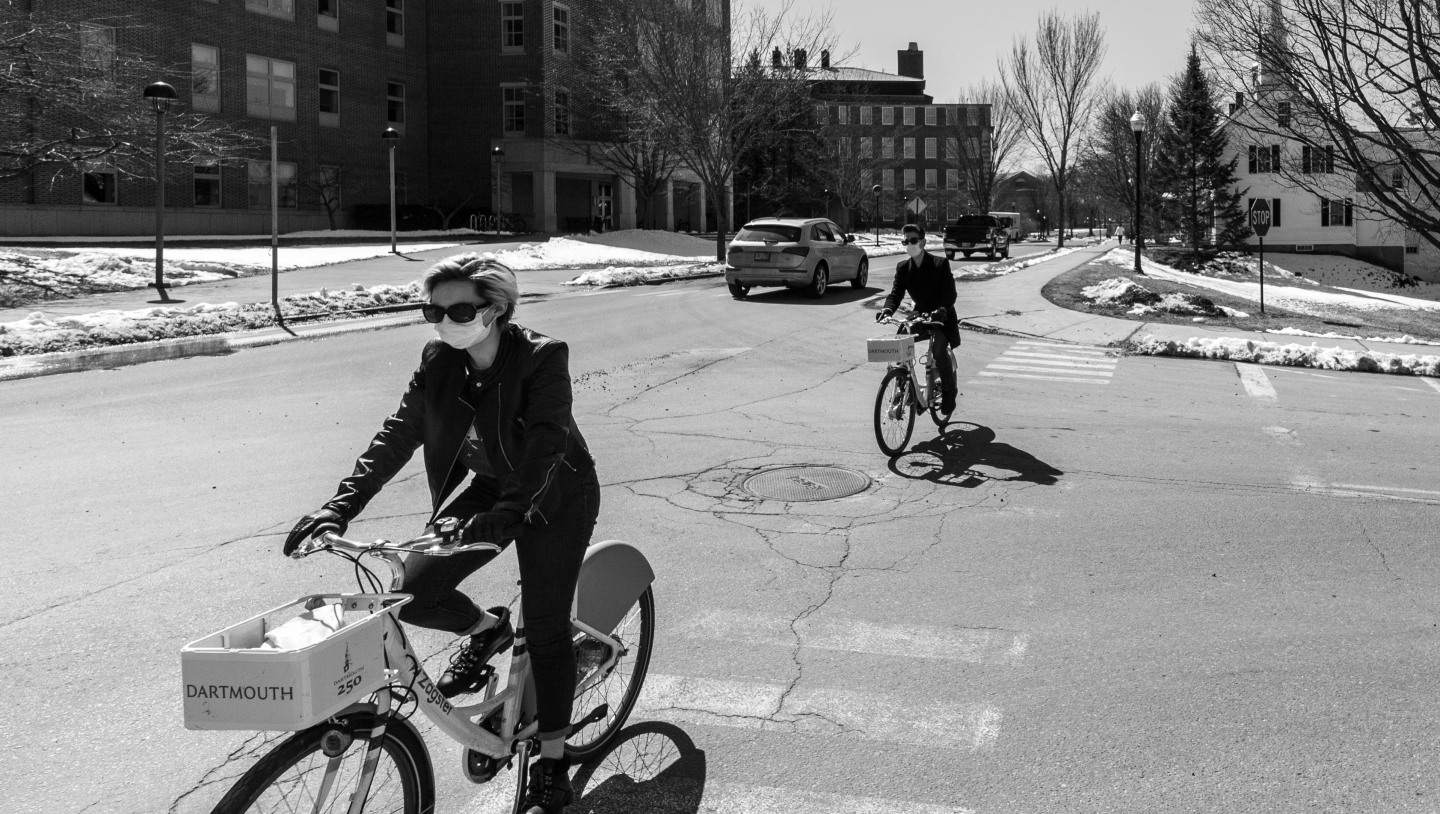All photos by Rob Strong ’04
HANOVER—April 1, 2020
Believe it or not, classes started Monday at 8:50 a.m.—on a campus that’s virtually vacant. As the nation nears a viral meltdown, Dartmouth began its grand experiment with remote learning. Will it work? Will students across different time zones be able to connect with their professors? Will everyone be wearing pajamas all term?
Like everything else, Dartmouth has transformed a zillion times since the coronavirus first struck. The pandemic changes everything, of course—even at dear old Dartmouth. No one knows what is coming in the days and weeks ahead.
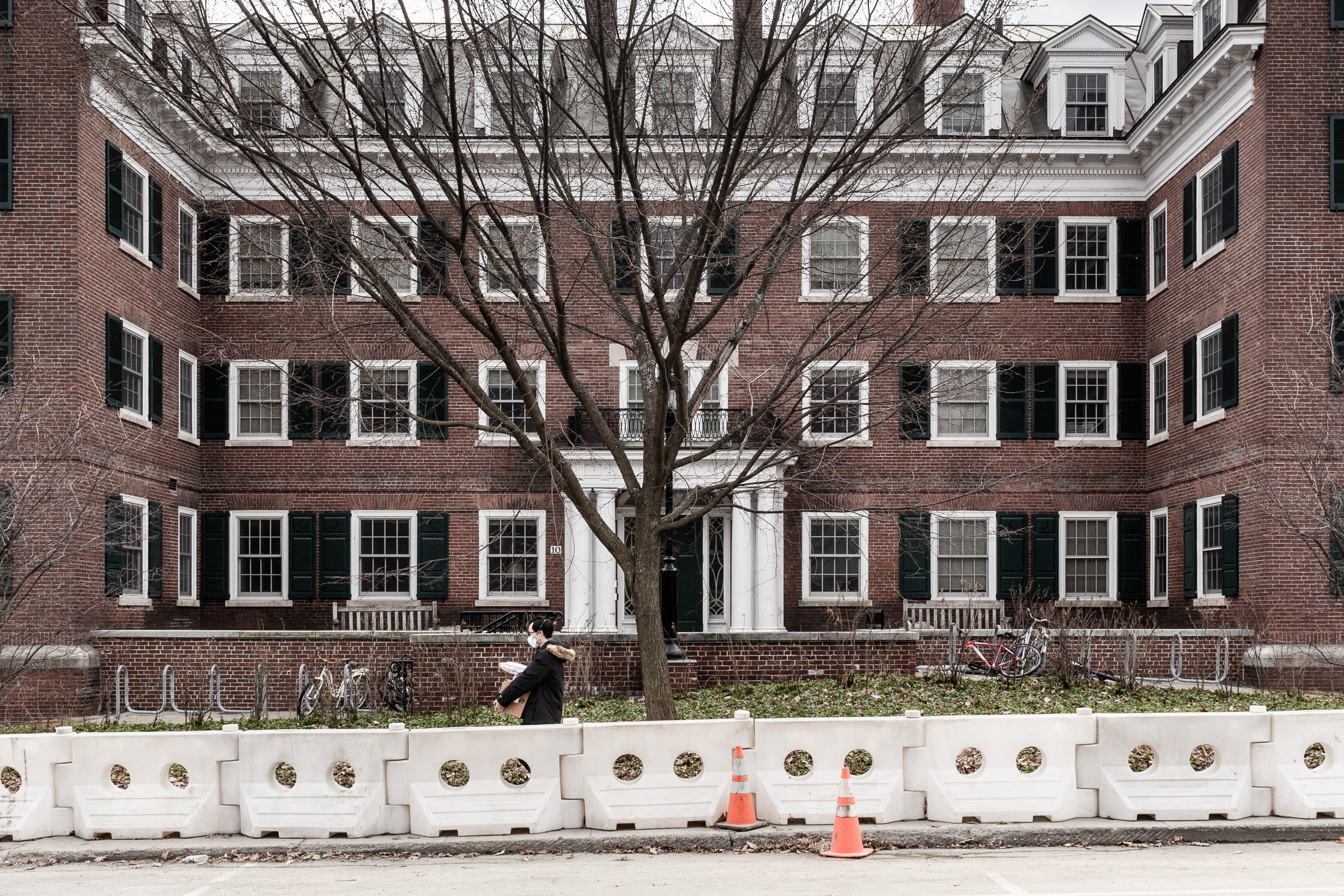
A College task force, established March 3, is meeting daily and making recommendations to Provost Joe Helble. The group is “charged with assessing the situation, assessing the decisions that Dartmouth needs to make based on guidance from the authorities and their own assessment of risk, and then making recommendations to me that potentially impact operations for Dartmouth,” says Helble. (Our interview with task force co-chairs Dr. Lisa Adams, DMS’90, and Josh Keniston appears here.)
Perhaps the most significant decision made thus far was to keep students off campus for spring term and go all-in on remote learning. With the announcement coming on the last day of winter term classes, professors had little time to shift gears and figure out how to become digital teachers, but they spent the last three weeks in a blitz of fastidious preparation. “We’re in new territory,” says Joshua Kim, director of online programs and strategy at the Dartmouth Center for the Advancement of Learning. “No one knows what’s going to work well and what’s not. This is all hands on deck.” He worries about students who may be challenged with “family or social situations.” Will the technology come through? Everyone is crossing their fingers. It’s a fluid challenge.
Approximately 250 students remain on campus. Many of them could not return home for a variety of reasons related to travel logistics, closed borders, and economic hardship. Several residence halls have been cleared out for use as student self-quarantine sites. Students who have been moved out are less than thrilled. Other facilities, such as West Gym, Leverone Field House, and Thompson Arena, have reportedly been eyed by the state of New Hampshire as potential wards that could accommodate up to 150 beds for overflow patients who need “low-intensity care,” according to Dartmouth officials.
Other students have returned to Hanover and are living off campus for the term. Some seniors are determined to spend their final quarter in town, even if it means defying travel advisories issued by the Centers for Disease Control and several governors. It is not known how many students are living off campus or in Greek houses.
At the Department of Safety and Security (S&S) incident calls are down, but “there’s an immense amount of stress out there,” says one officer who, like his colleagues, is equipped with gloves and mask if needed. S&S interim director Keiselim Montás remains matter-of-fact. “There’s a lot of misinformation, fear, and panic,” he said by phone (no video!) two days ago. “We’ve all got to stay positive, factual, and informed. Some of us will get this disease, some will recover, some will not. We need to do our best to control the spread of it and help each other out.” (Later the same day, Helble reported that a College employee and an undergraduate living on campus had tested presumptive-positive.)
Just about everything has been canceled for April and May, including the annual Pow Wow and, most likely, Green Key. The Dartmouth is publishing online only. WDRC is offering remote shows for anyone who wants to DJ. Outdoor programs has nothing scheduled—the Ledyard Canoe Club canceled its 100th anniversary celebration—and the Outing Club sent an email urging members to stay indoors and self-quarantine. “Many outdoor areas are not being maintained, and many of them are near small communities that do not have large medical support networks or resources and as a consequence cannot handle a large outbreak,” it read. All foreign study programs were canceled, creating havoc for roughly 120 students planning to spend the term abroad. (Read one student’s account here.) Summer term programs, domestic and foreign, are suspended. Sophomore trips are on the brink.
Alumni Council will hold a virtual meeting in May. Announcements about reunions, Commencement, and Sophomore (plus other classes?) Summer won’t be made prior to April 10.
Students: There’s been frustration. There’s been courage. There’s been despair.
Alida Angafor ’21, who is living on campus for the term, says that during the break the administration delivered packages of hand sanitizer, wipes, and other basic supplies as students gradually began to self-isolate. “Students might still hang out, but it’s a lot less,” says Angafor. Janice Chen ’20, who lives off campus, remains in Hanover. “I would go home if I could to ensure the safety of Hanover, but I’m from Hong Kong, and being here allows me to continue to work and earn an income,” she says. Chen and her roommate, a classmate from California, have been hanging out in their apartment. She wishes others would do the same. “Last week we were on these online group chats, and a lot of students were talking about still coming back to have their senior spring,” she says. "It’s frustrating to see that not everyone is taking this seriously.”
On March 18, Helble and President Phil Hanlon ’77 held a virtual town hall. They’ve promised more. Students who participated were disappointed that their real-time questions were not answered. They wanted to know plans for the required swim test (since waived for seniors), how to retrieve their belongings from dorm rooms, how their College-based health insurance would work if they take a leave of absence, and even why the administrators weren’t expressing more sympathy to the graduating class.
Since then, a credit/no credit grading policy was established for the term, which has met with mixed reactions. “It’s not like I’m going to put any less work into these classes, so I’d like to earn a good grade, not just a credit,” says one student. “There are a lot of questions floating around about how credit/no credit will stack up for employment, internships, and grad school,” adds another. “Students would rather have an opt-in policy—both sides can be fulfilled.” Some students view the policy as an opportunity to take more difficult courses—without any risk to their GPAs.
Many students do not like paying full tuition for the term, and their petition demanding a discount has accumulated more than 2,800 signatures.
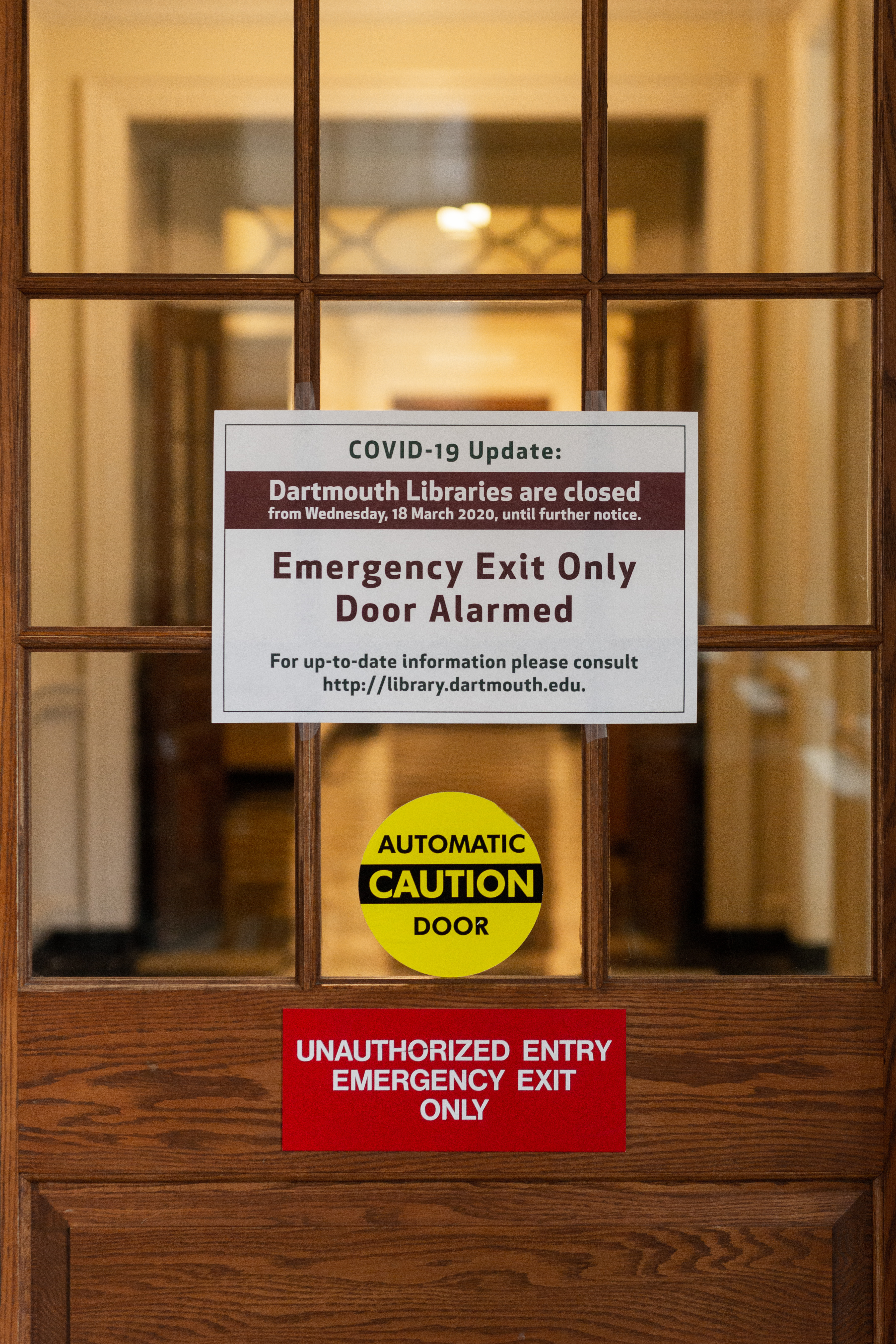
Professors Mobilize
The first class scheduled for the quarter, “Chinese 1” with professor Alan Li, was set to start at 7:45 a.m. Monday. Upon learning that some of his students were in Hawaii and California, he changed the time to 4:30 p.m. There will be many adjustments made on the fly. At 8:50 a.m., several classes got under way, including “Capitalism, Prosperity & Crisis” with sociology professor Misagh Parsa. “It went very well,” he says. “I met almost all of the students enrolled in the course. Zoom worked out well.” Onward. Econ professor Bruce Sacerdote ’90 says he’s been “working hard to master Zoom” as he organizes a seminar for senior honors thesis writers. He believes faculty will deliver the best experience they can, given the nature of remote teaching, and predicts the value of Dartmouth’s traditional small classes and personal interaction with professors will make a strong comeback in the wake of the virus. “In-person interactions, experiential learning, and small classes remain by far the best way to learn, grow, and do research,” he says.
The College’s course guide includes some juicy topics:
• “Public Policy and Pandemics” with government professor Joseph Bafumi
• “What’s to Become of Us? How Classic Science Fiction Predicts Humanity Will Cope with a Damaged World” with chemistry professor Jane Lipson
• “Crisis and Strategy in American Foreign Policy” with resident scholar David Rezvani
• “Dystopian Visions” with English professor Thomas O’Malley
• “Fact or Fiction? Politicized Topics in Biology” with professor Brittny Calsbeek
Many professors have digitally expressed their opinions and concerns about the pandemic. Government professor Brendan Nyhan has been advocating for good “info hygiene” as we post on social media. “You are a credible, respected source in your social network, and you can do a lot in that context,” he says. “There is a lot of local rumor and misinformation that you might be able to help deal with or at least limit its spread.”
Professor of natural philosophy Marcelo Gleiser offers his take on how the coronavirus could create “an awakening” for our species. “We must think collectively as a human hive,” he writes.
Tuck prof Emily Blanchard weighs in on how the United States can fix its medical supply chain, advocating for more globalism and fewer “crazy tariffs.”
“It’s hard to feel complete when we are not close to each other,” says philosophy professor Samuel Levey, who speaks about how the study of philosophy can bring comfort in times of crisis.
When econ professor Charlie Wheelan ’88 wrote The Rationing last year, little did he know how prescient his tale of a pathogen that threatens humanity would be. “It was intended to be a public policy book dressed up as a thriller,” he says. “And in that sense, there clearly was a message that we need to pay attention to governance or something like this could/will happen. I just didn’t think it would be this on the nose.” As Wheelan contemplates a sequel, sales of The Rationing have soared thanks to all of those Quarantine Reading Lists popping up everywhere.
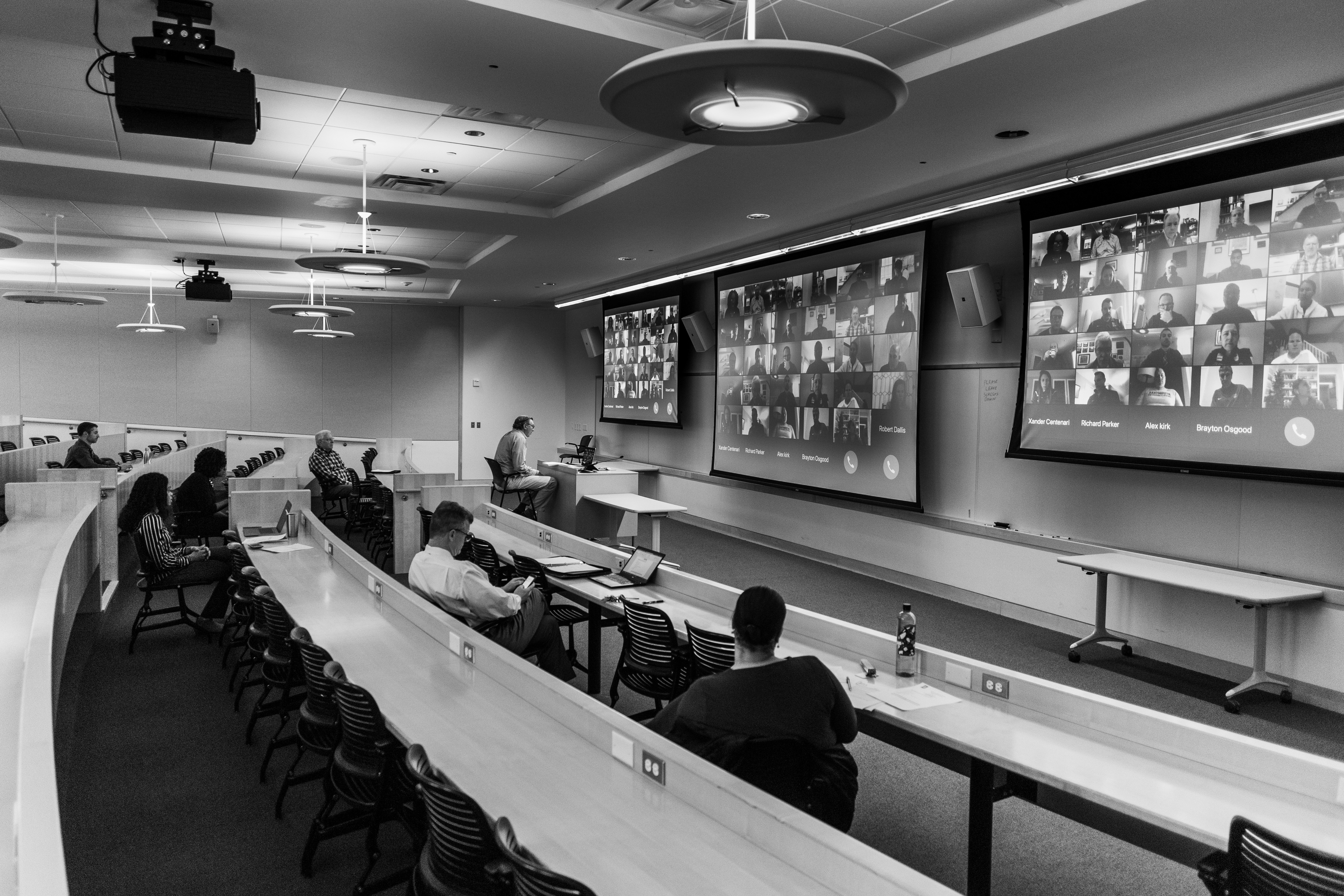
End of the Game
A number of student-athletes and coaches had their seasons cut short or canceled altogether. “When the New England Small College Athletic Conference canceled the spring [on March 11], I think that everybody kind of went, ‘Whoa, what do we do now?’ ” athletics director Harry Sheehy told The Dartmouth. “We’re watching this thing unfold in real time right in front of our eyes. I would expect to wake up tomorrow with the world in a slightly different place than it is right now.” (That’s Sheey above, middle of photo, having a Zoom meeting with all coaches on March 17.)
The women’s lacrosse team was off to a 5-0 start when the season came crashing down following an 18-5 pounding of the University of New Hampshire on March 7. “When I met with our team to talk about the end of our season, I told them they would be feeling a wave of emotions and to let it happen,” says coach Alexandra Frank. “The sorrow we felt for our seniors turned into laughter the next day as we reminisced about their careers. I am incredibly proud of what we were able to accomplish in the short season we had and devastated that we won’t be able to see what this team would have been able to achieve. I am inspired by the 34 young women on our team who have gone through so much adversity throughout their careers and have always persevered.” Her top scorer, Katie Bourque ’20, writes that she’d “rather have five games with this team than a whole season with anyone else,” but, like other senior-athletes, losing her final season has to hurt. She’s now taking classes from Ridgewood, New Jersey. (Katie’s father, Harry Bourque ’85, played lacrosse and football.)
The men’s hockey team fared better. “As disappointing as it was for our guys to have a good season end prematurely by being defeated in the first round of our playoffs, it nonetheless allowed us the opportunity to be together when the season concluded,” says coach Bob Gaudet ’81. “I feel for the athletes and coaches who had their seasons cut short by something totally out of their control.” Team strength coach James Baker has put together a training program for players to use at home, “including an option for those without any equipment at their disposal,” says Gaudet. “As a team we often talk about the important role that attitude plays in successfully navigating any challenge in life. I have the utmost faith in our group as students and in Dartmouth’s faculty to make this a successful experience.”
Baseball coach Bob Whalen has an empty ballfield. “On Wednesday, March 25, I watched it snowing out the window of my office on Red Rolfe Field. It was supposed to be our home opener against Quinnipiac University. Ugh!” he tells DAM. “It was a feeling of emptiness. Even if the field were clear, our season had ended due to the COVID-19 pandemic. All the players’ hard work from fall baseball through the preseason was gone so quickly. As shocking as it was, President Hanlon, along with the other Ivy League presidents, made the right decision putting this public health crisis, and the safety of our community, ahead of athletics. I never felt worse for our players after a team meeting than I did that day, in particular, our seniors, who most likely would never wear a Dartmouth College uniform again. I was proud of the way the players handled themselves with the general attitude of staying connected and staying together and we’ll get through this.”
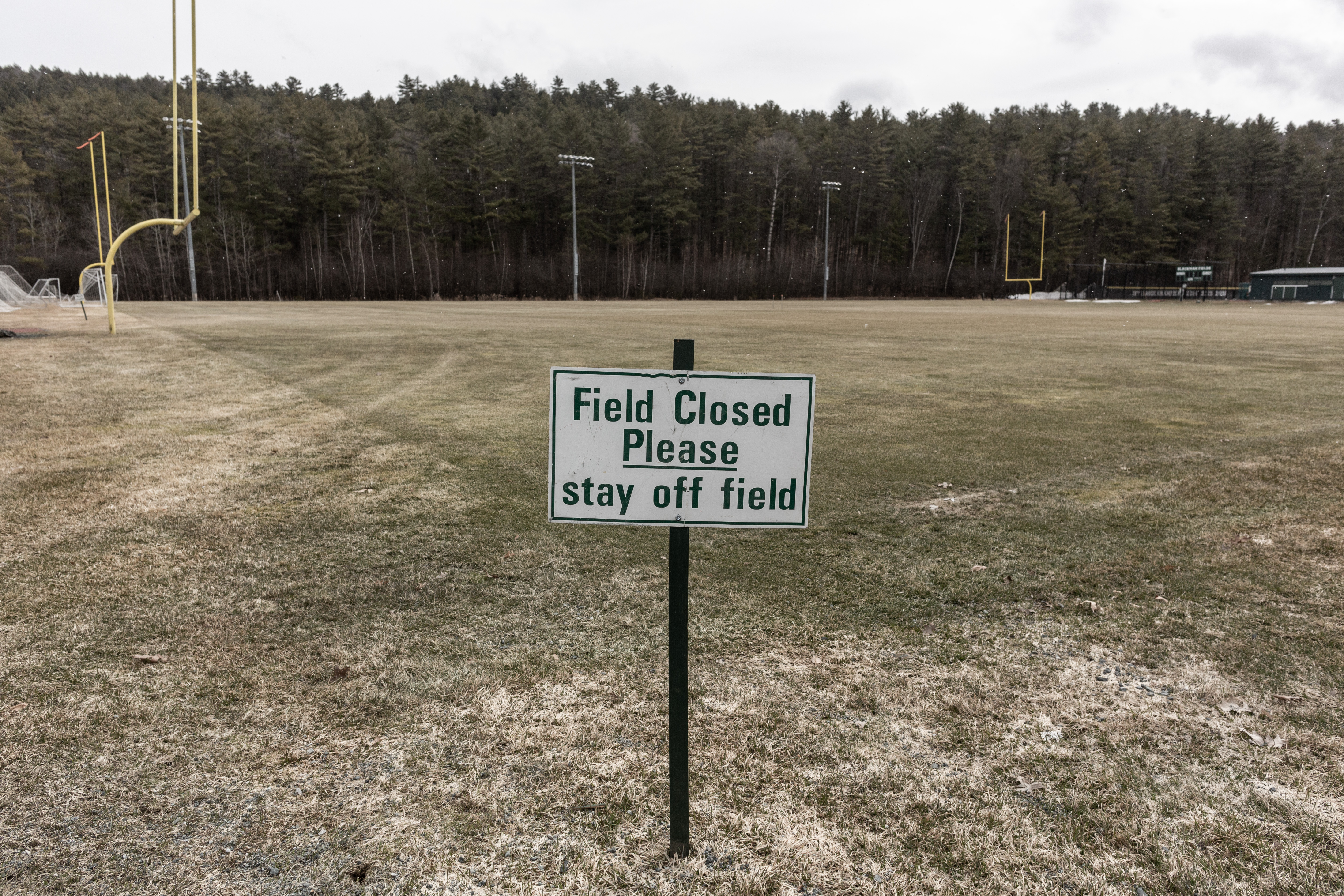
The Library
Even with the library closed for the term, Sue Mehrer, dean of libraries, says her staff will play a significant role in remote learning. “[We’re] providers of inspiring spaces for inspiring ideas,” she says. “We’ve been diligently and thoughtfully consulting with faculty, designing remote course sessions and workshops, pulling and scanning print materials, and developing new information portals to guide faculty and students looking for electronic resources. In addition, we’re working with our vendors, academic library partners, and other organizations such as the Internet Archive and HathiTrust to make available even more digital copies of print materials.” Mehrer predicts they’ll discover more innovations as the spring unfolds. “The coming weeks will require us to respond in equally creative ways to make sure that our students feel well-supported, engaged, and connected—a challenge I know our staff is well-equipped to meet.”
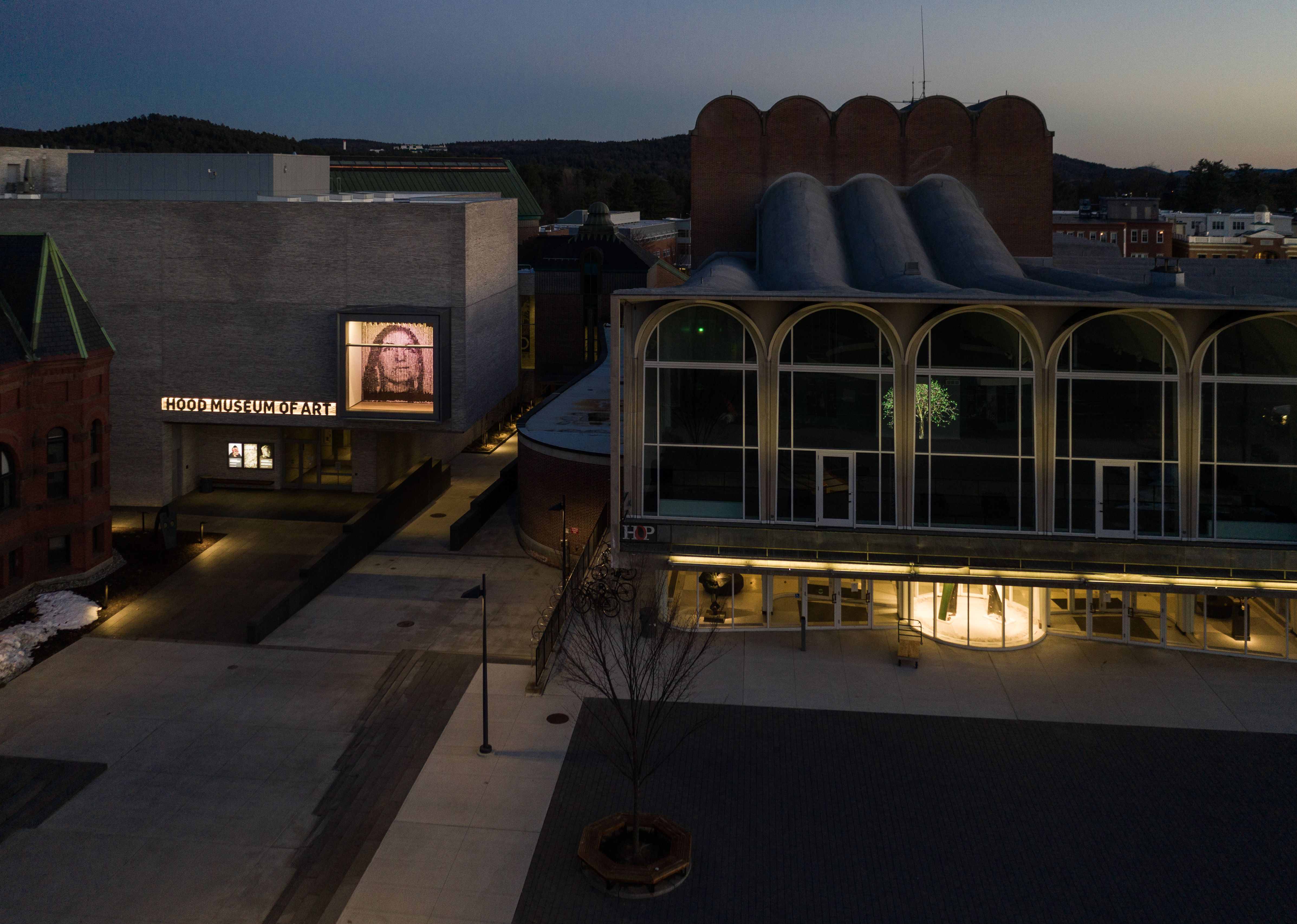
Hood Museum
For more than two years, associate curator for Native American art Jami Powell worked on her exhibition, Form and Relation: Contemporary Native American Ceramics. She spent four weeks working with staff and the artists on the installation. At 11 a.m. on Friday, March 13, the exhibit opened. At noon, Hood director John Stomberg informed Powell that the museum would be closing later that afternoon. “She took the news like a champ,” says Stomberg. “It’s the kind of accommodation that we are all making these days in an industry that specializes in direct experiences with art and that measures its success by crowded galleries—neither of which are currently possible.” His team adjusted quickly to develop ideas for teaching art remotely and having a museum with no patrons or employees onsite. “Within a week, new ideas flowed, contacts were made, and now as we begin the new term—the Hood is ready.”
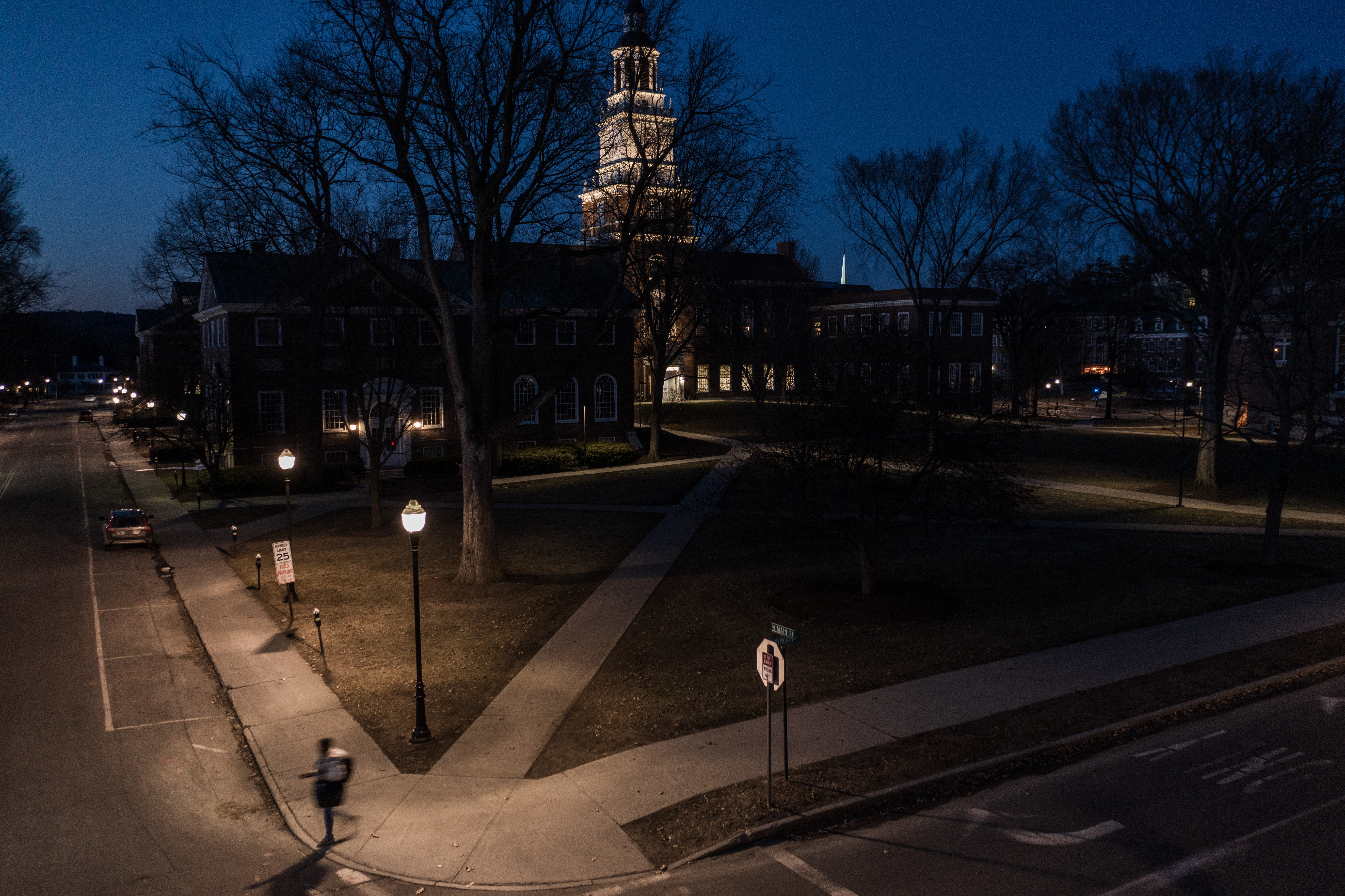
Slippery Slope?
“Dartmouth’s institution-wide finances will face immediate and long-term consequences,” President Hanlon wrote in a community message March 27. He expects a downturn in revenue—and announced the College lost more than $15 million in anticipated room and board charges for spring term. The endowment obviously took a beating. A hiring freeze is likely. The good news? The investment office has been working to develop a buffer for bad times through the deployment of a revenue stabilization reserve. With luck, the reserve should help mitigate a frightening financial landscape. The bad news? Hanlon’s note includes a stark reminder: “The magnitude of the financial shock will require us to take additional steps to meet the immediate financial challenges we are facing.”
Alumni Helping Students
A number of alums living abroad—particularly in Europe, the Middle East, and Africa—have contacted the College to find out how they can help undergraduate students who are experiencing financial challenges due to the COVID-19 pandemic. The Call to Lead campaign includes a goal of $4.5 million to support, through restricted endowed gifts, the financial needs of first-generation, low-income students. In a nimble move by the development office, this goal now includes a $500,000 Emergency Student Relief Fund. The emergency funds are designated for current use, making the aid available immediately as determined by the office of student affairs and its policies to support students “of limited financial means who are dealing with unexpected pandemic-related expenses not covered by Dartmouth’s financial aid packages.” The emergency fund is at 32 percent of its goal.
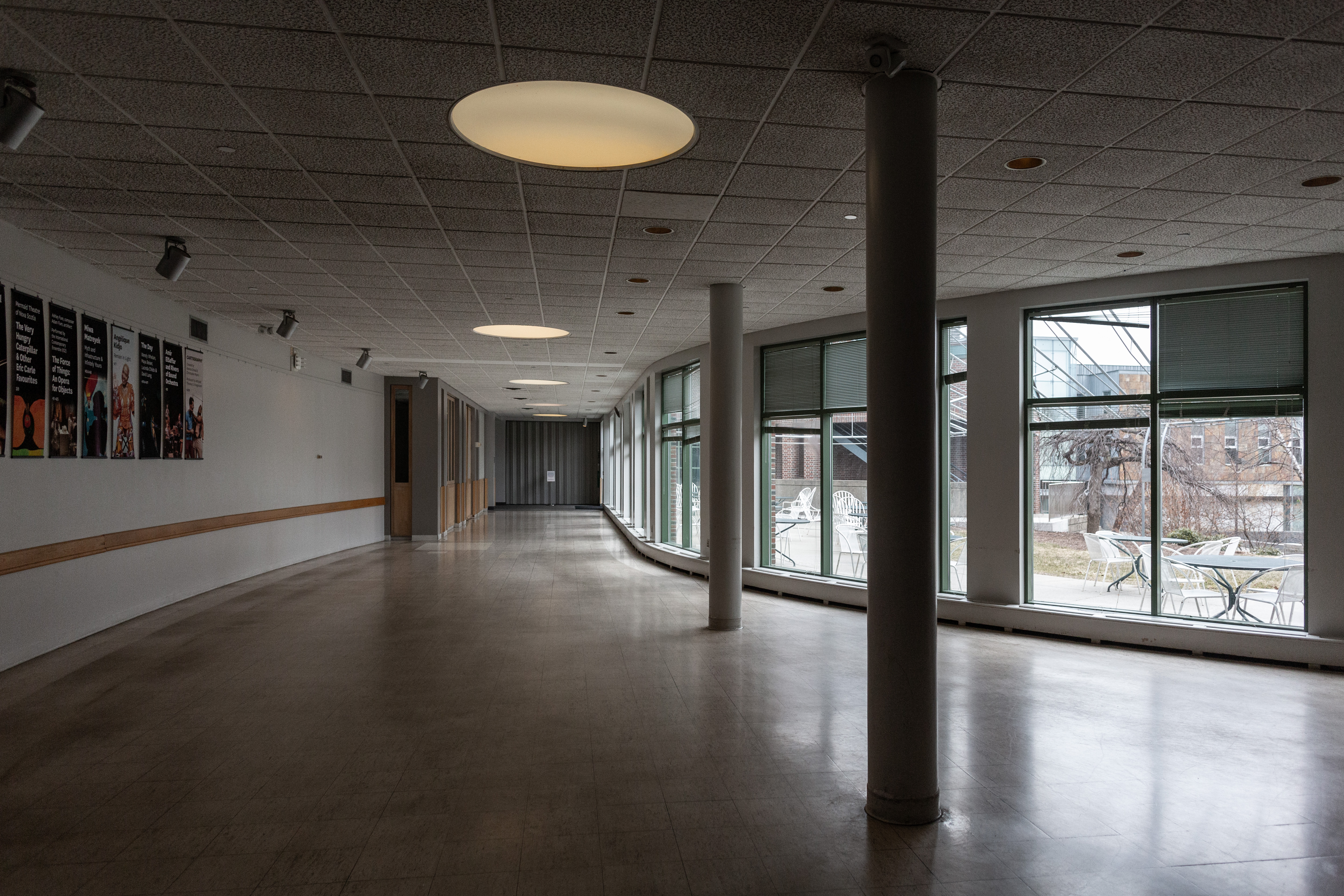
Unsung Heroes
Union workers, upon learning that Dartmouth’s administrators and staff would be asked to work from home, expressed concerns that their campus jobs, which require them to be on campus, might put them at greater risk if any employees still came in. Today, the vast majority of College employees are working remotely. Quality assurance coordinator Laurie Tostenson, who oversees janitorial services, says she’s working to minimize “the risk to staff” with reduced, rotating schedules, and that she’s buoyed by workers’ desire to do their jobs and keep everyone safe. If they can’t or don’t want to work, they’ll still be paid, she says. As breaking research offers more information about the coronavirus, she notes, cleaners are being trained to “attack certain surfaces, such as plastic, more vigorously” and learning a lot about “hand hygiene.” Her team is addressing buildings still in use, where doorknobs and bathrooms are receiving extra attention. “We’re all learning how important we are to each other,” she says. “Distancing is the hardest part.”
Trustees
The board of trustees has met several times over the past 10 days, including its first-ever Zoom meeting last week. Committees have huddled, and chair Laurel Richie ’81 is in close contact with President Hanlon and senior leadership. “As of our last meeting, we were all healthy, hunkered down, and adapting to new ways of working,” says Richie. The board’s work has centered on three areas: the health and safety of students, faculty, staff, and the broader Upper Valley community; the continuity of teaching and research; and the financial challenges the pandemic poses to individual students, their families, and the institution as a whole. (Four new trustees were elected earlier this week.)
Class of 2024 Admitted
Even as the pandemic spread, some 1,882 College applicants found reason to rejoice as they were accepted to the class of 2024 on March 26. Vice provost for enrollment and dean of admissions Lee Coffin welcomed those accepted despite the “unusual circumstances for all of us.” The acceptance rate of 8.8 percent, third lowest in Dartmouth history, was up from the record low of 7.9 percent last year. (Harvard and Princeton admit rates also went up.) Admissions officers say the class shows a continued geographic shift from New England/Mid-Atlantic states to those in the South and West, and that the class’ socioeconomic diversity, as measured by Pell Grant eligibility, is at an all-time high. Events for admitted students have been canceled. The office of admissions plans to launch “an extensive digital campaign” to stay in touch with admitted students. The pandemic will almost certainly affect yield.
Big Dig Continues
Some construction sites on campus remain active, as much as social distancing protocols allow. That includes the new $200-million Thayer School of Engineering building. “In accordance with the recent order made by N.H. Gov. Sununu, construction is continuing but in a modified fashion providing for appropriate health and safety precautions,” a College spokeswoman says. “We are evaluating all ongoing construction projects and working with our construction management companies to make appropriate adjustments based on the nature of the work.”
—Written by Sean Plottner with additional reporting by Susan Shock, Svati Narula ’13, Christopher Cartwright ’21, and Lucy Turnipseed ’20
Photographer Rob Strong ’04, who roamed—carefully—around campus for the photos that accompany this story: ’“I always look forward to the first perfect day of spring, when the Green is finally dry enough to lie out under the sun, and that day will come, but who will be out to enjoy it? A couple of things struck me during the past couple of trips I made around campus. One is the term ‘until further notice’ on all of the buildings. That’s an ominous phrase. Who knows how long it will be until Baker, Sanborn, Dartmouth Hall, the gym can open again? On the other hand, the signs are still up in the Hop asking patrons who feel unwell to not attend whatever performance is on that evening, offering a refund for their ticket. It’s a strange reminder of an optimistic week back when we could still gather but the impact of the virus was beginning to cause local concern.”
